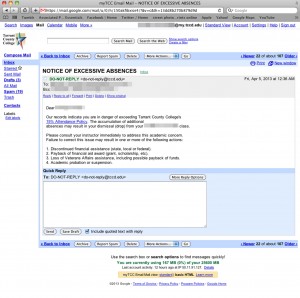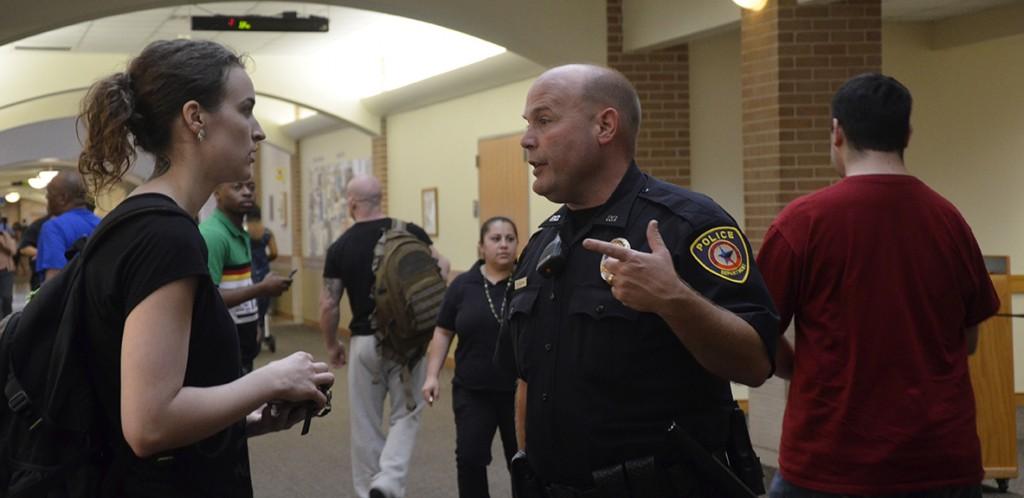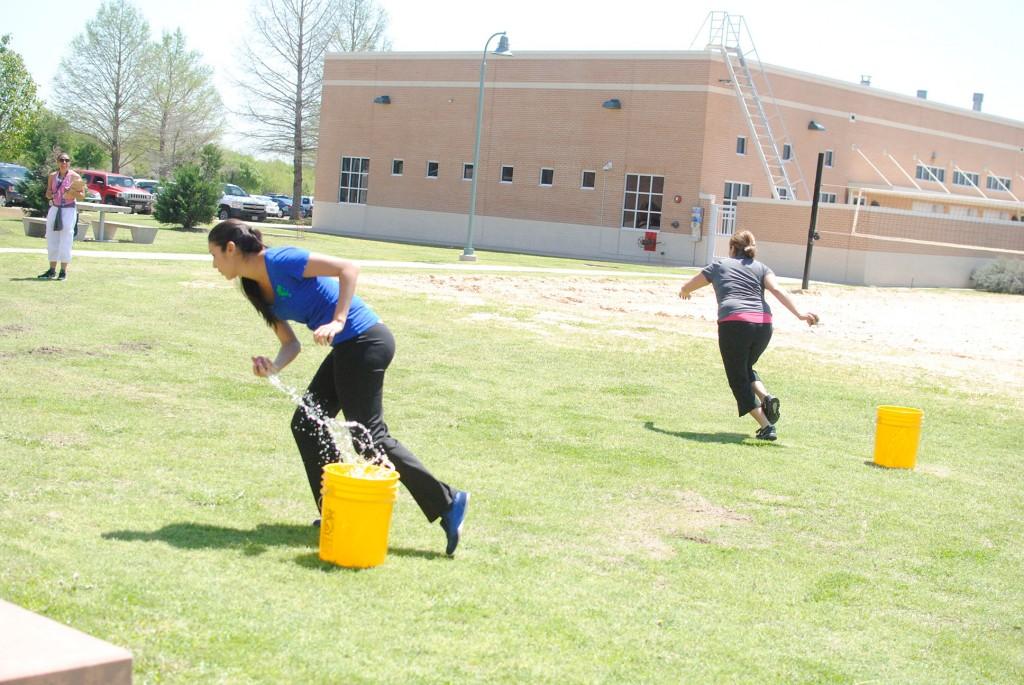
By Kenney Kost/managing editor
TCC students who are in danger of exceeding the mandatory attendance mark could lose their financial aid, Veterans Affairs assistance and could be placed on academic probation or suspension.
This is in the automated email notice the district sends out when a student is close to reaching the maximum absence mark of 15 percent of class. The instructor does not send it, and, according to NE vice president of academic affairs Gary Smith, it has not had the desired effect.
“The district went back early on in the process and looked at what those students who were sent the message did,” Smith said. “A large percentage simply dropped before speaking with their instructors.”
Smith, along with other administrators, believes the messages are intimidating. Students either ignore them altogether when they see “do-not-reply” in the subject line, or they panic after reading the message and go straight to the registrar’s office to drop the class.
“The way it is now changes the dynamic of what we intended,” he said. “It’s not about success or failure anymore, it becomes a financial situation, and the teacher is left out of the equation altogether.”
Instructors can access two versions of this message to send out themselves. One is about attendance, and one is about missing assignments. The problem with these is the instructor does not know when the district alerts go out. They may send one out to the student either right before or right after the district alert.
NE speech professor Cheryl Hamilton said if a student is behind in more than one class, they could be bombarded with alerts from the district and the instructors, further intimidating the student.
“If a student is taking five classes and gets behind in all of them, there is the possibility of receiving 10 or more alerts,” Hamilton said. “That can be very stressful, and there is no communication between the student and instructor if the student just drops. Our goal is student success. That is the entire purpose for the alerts. It hasn’t turned out the way we wanted it to.”
Jo Bagley, South vice president of academic affairs, said the academic lifeline alert committee has been diligently working to find a solution. The group wants a system that is more personal between the instructor and the student, prompting communication between them instead of students dropping or ignoring the alert.
“We found that the current system needed improvements such as follow-ups and a way to track when alerts are sent out from any instructor,” Bagley said. “We want students to know that there are many resources available to them to help in their success, so we knew we needed to take a different look at what we were doing.”
The new system being discussed would ideally allow for the instructor to select the wording, keep track of how many are going out to students and when they go out. The committee is meeting with a software provider to view a presentation on possible software and its features. The committee’s main goal for the software is for students to feel comfortable with their situation and to understand it can be fixed.
“We want the student to feel the college is reaching out to them,” Bagley said. “The new system we are going to look at, we feel, will do the things we need it to do.”
The software is the only thing holding back the process, and Smith said once that is secured, the whole process can move forward.
“I think we all want to do it and make it work,” he said. “We are just trying to find the proper way to deliver it.”




























